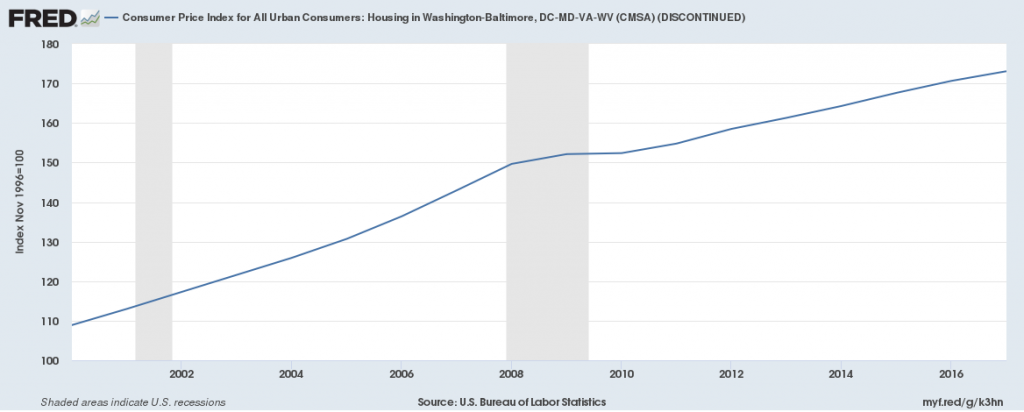Gross Domestic Product
Real GDP (a measure of economic growth) has been steadily growing, slowing slightly from 2008-2009, hitting a peak of $340 billion in 2017.
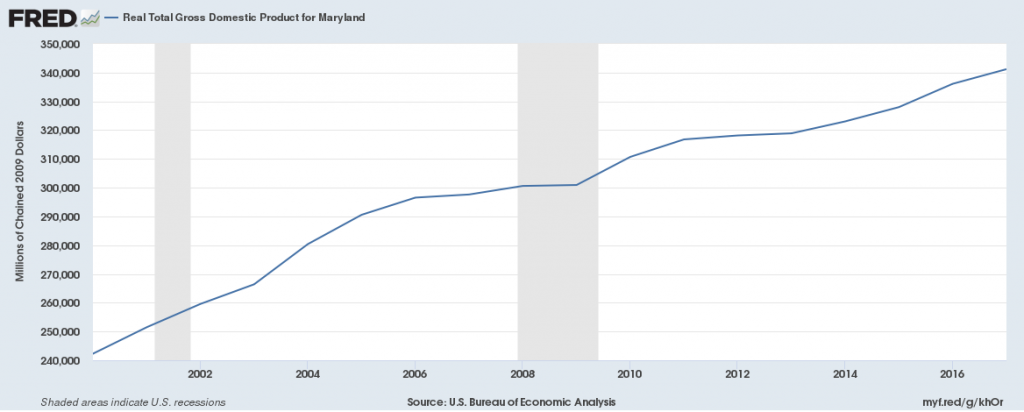
Jobs
Private-sector employers have added 290,000 jobs since February 2010, the national low point for private-sector employment. From 2017 to 2018 the private sector added approximately 20,000 new jobs. Average hourly wages in the private sector have been slowly increasing since 2008, going from $24/hr to $30/hr in 2018.
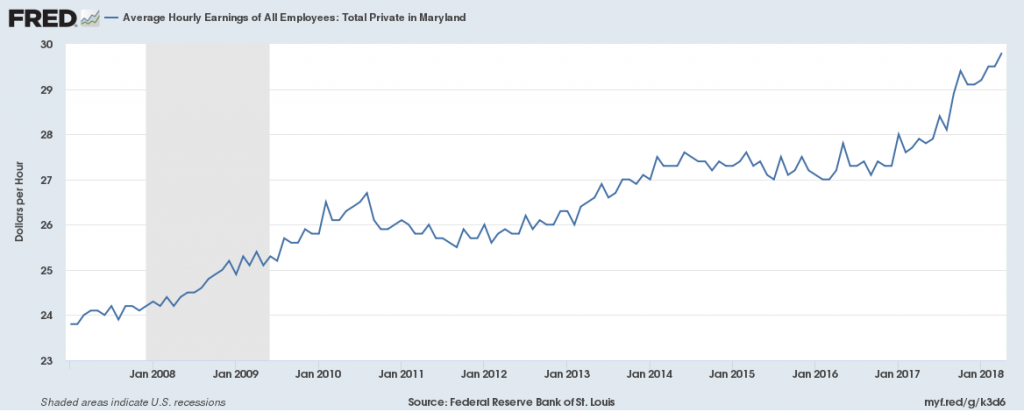
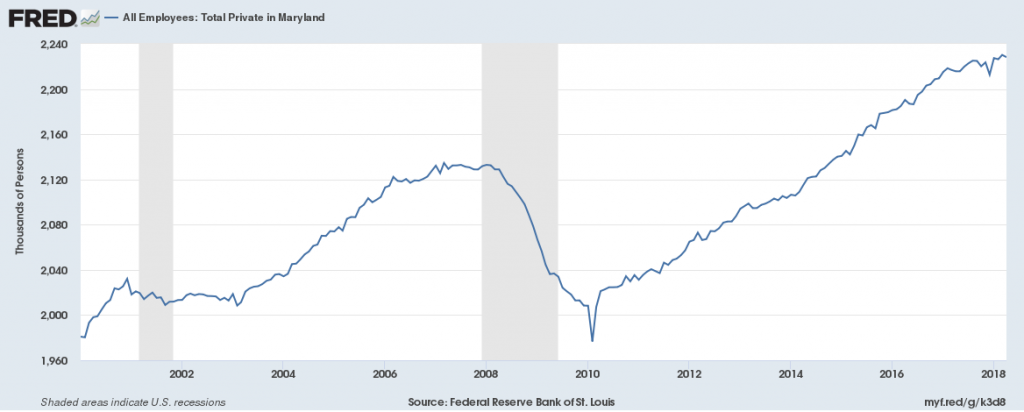
Manufacturing employment has declined steadily since 2000, especially during the 2008 recession. There are currently 108,000 jobs in this sector in 2018, down from 173,500 in 2000. Average hourly wages of production employees have risen from their 2012 low of 16/hr to $22/hr in 2018.
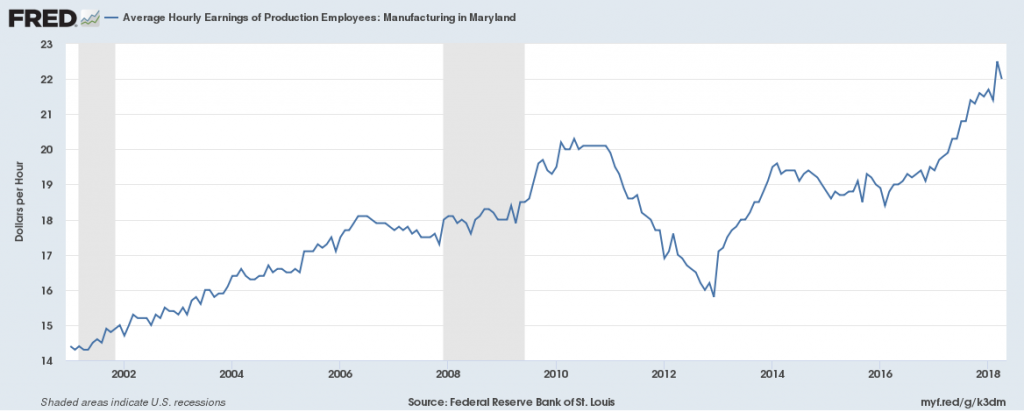
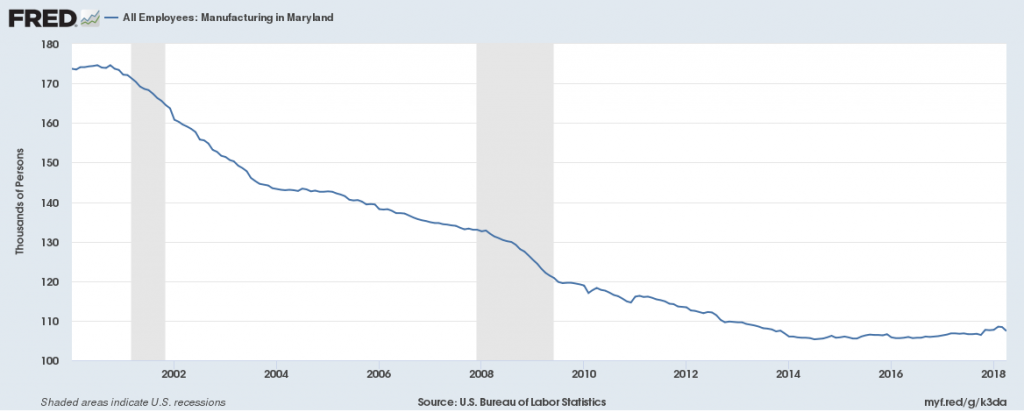
Transportation, Warehousing and Utilities employment has increased since its 2010 low, going from 65,000 jobs to 85,000 workers in 2018. The average wage in the Transportation, Trade and Utilities sector was $24.50/hr in 2018, up from $20/hr in 2010.
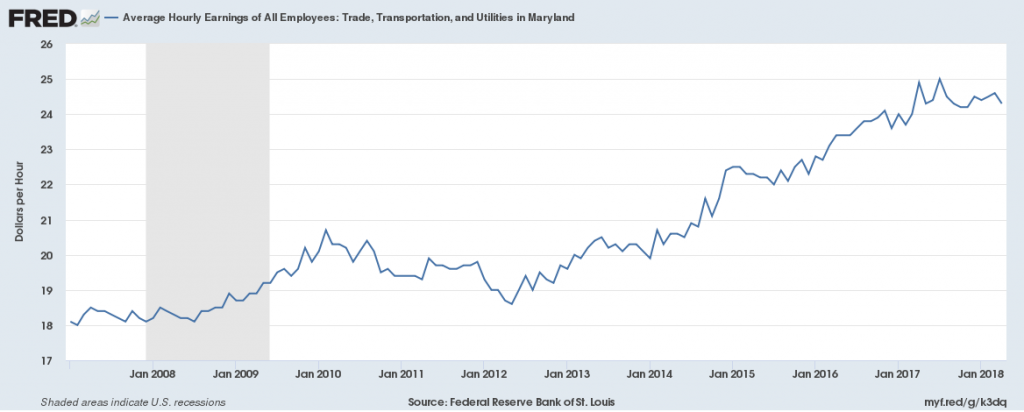
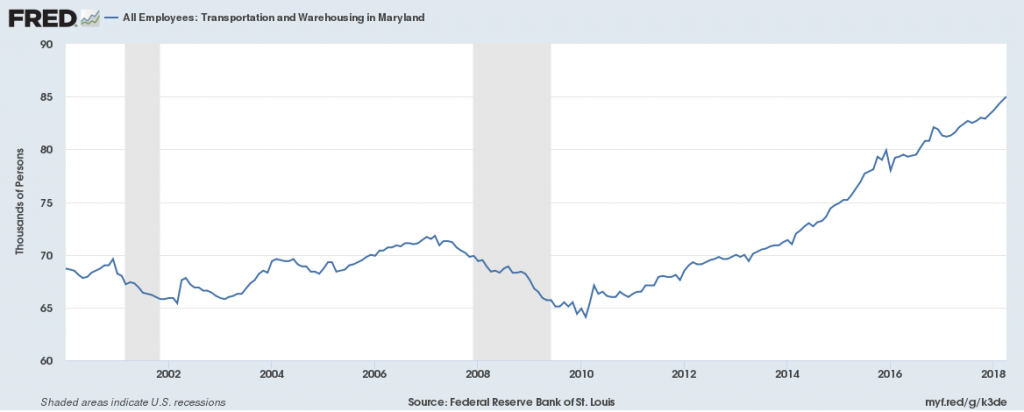
Unemployment
The unemployment rate in 2018 is 4.25%, the same as the year before. This is almost the national average of 3.9% unemployment.
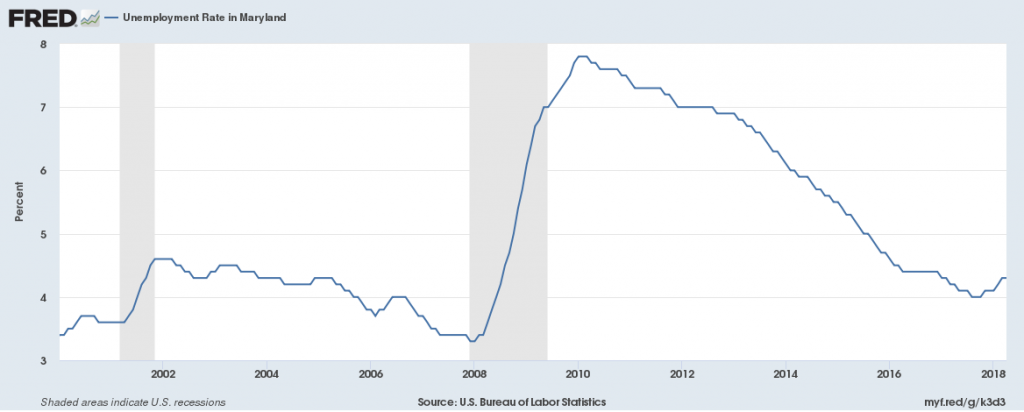
Housing
The House Price Index, a measure of the cost of housing, has decreased since its 2007 peak of 530, and has been steadily growing since 2012 to its current 478, reflecting lower but currently growing housing costs.
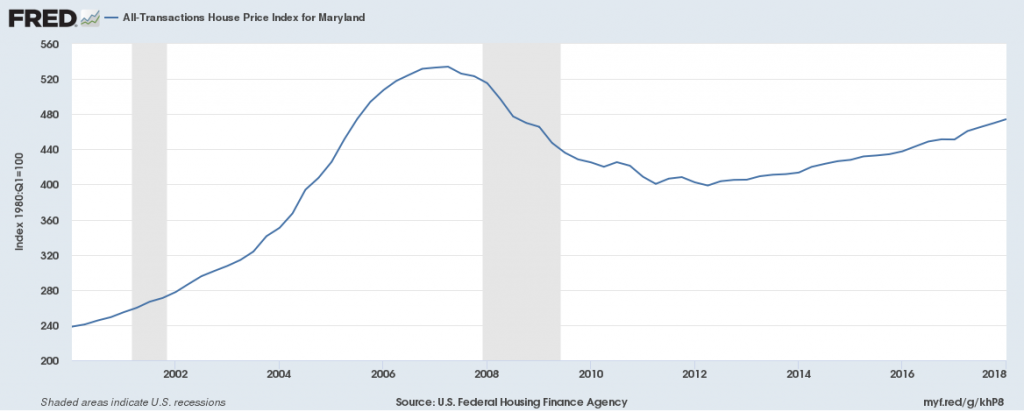
Baltimore
Jobs
Private Sector
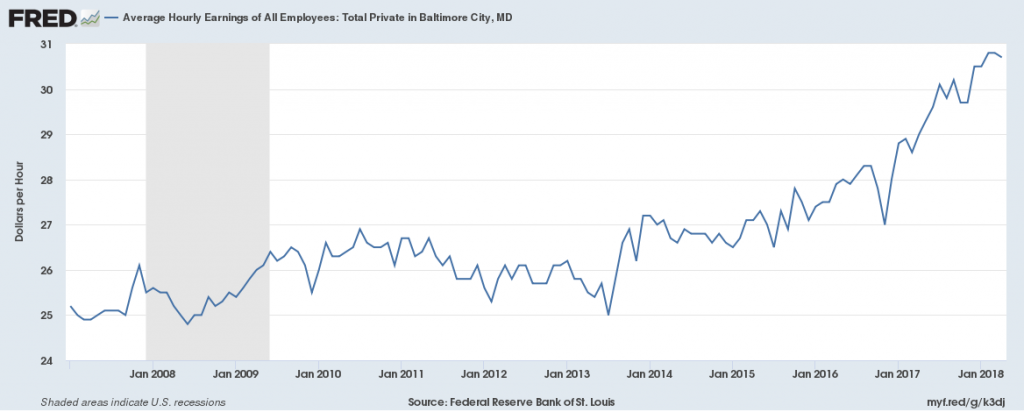
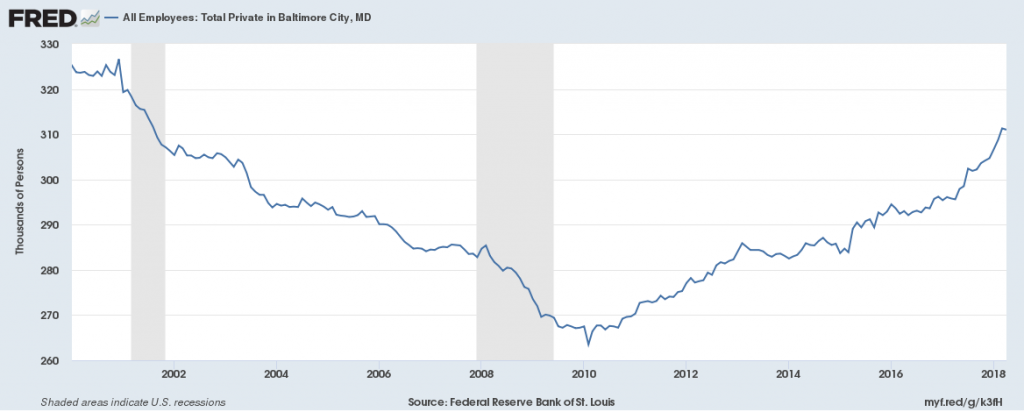
Manufacturing
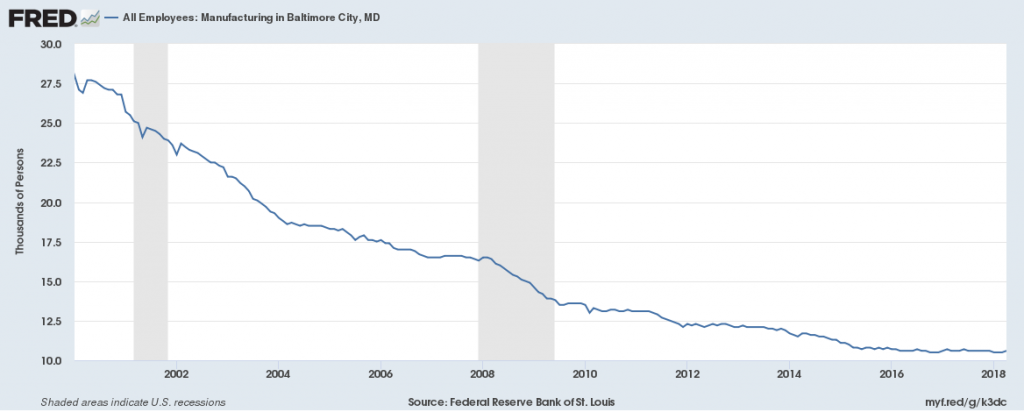
Transportation, Warehousing and Utilities
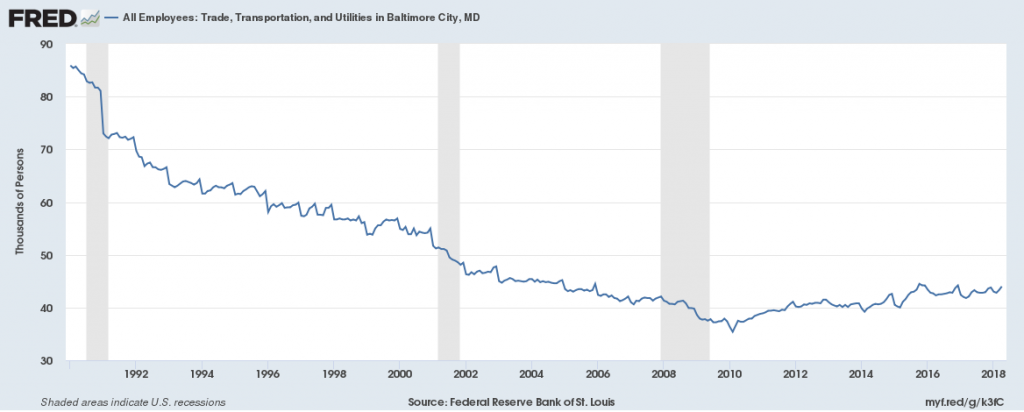
Unemployment
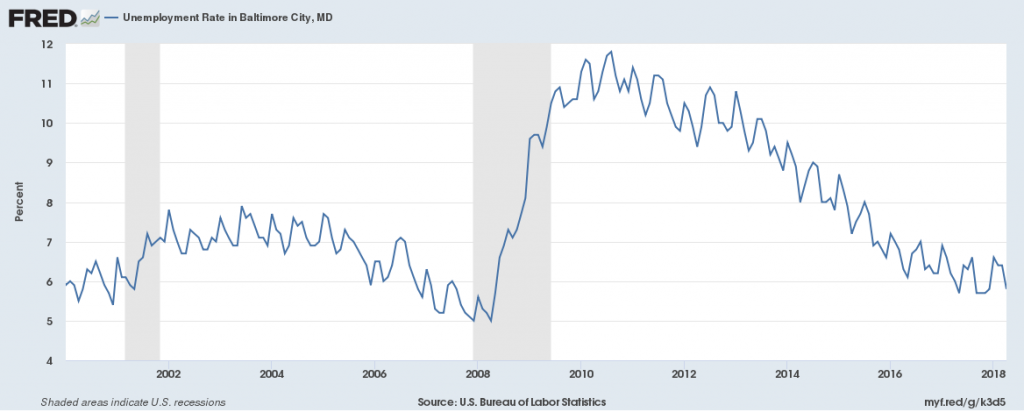
Housing
